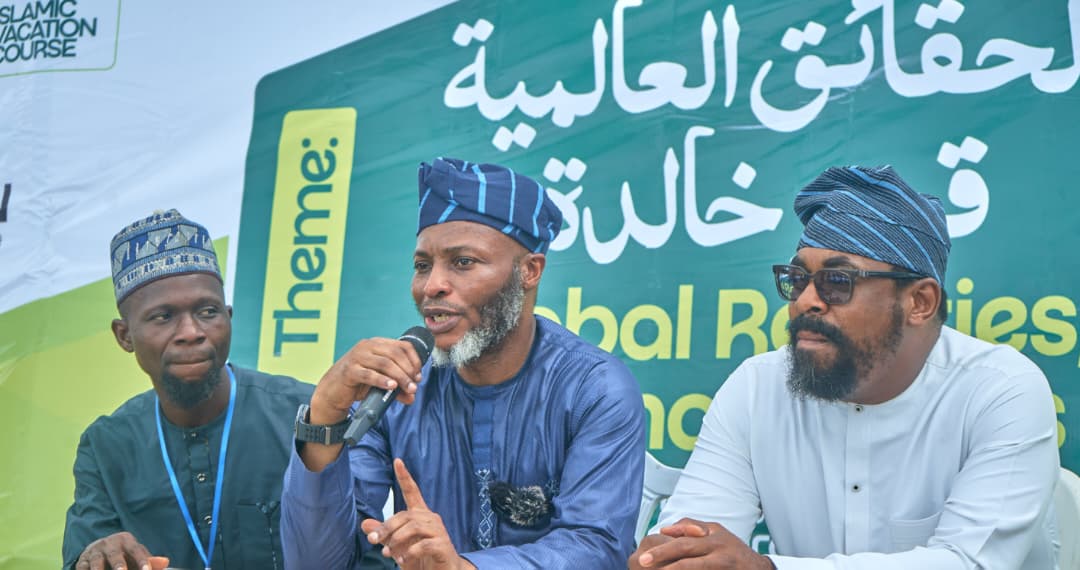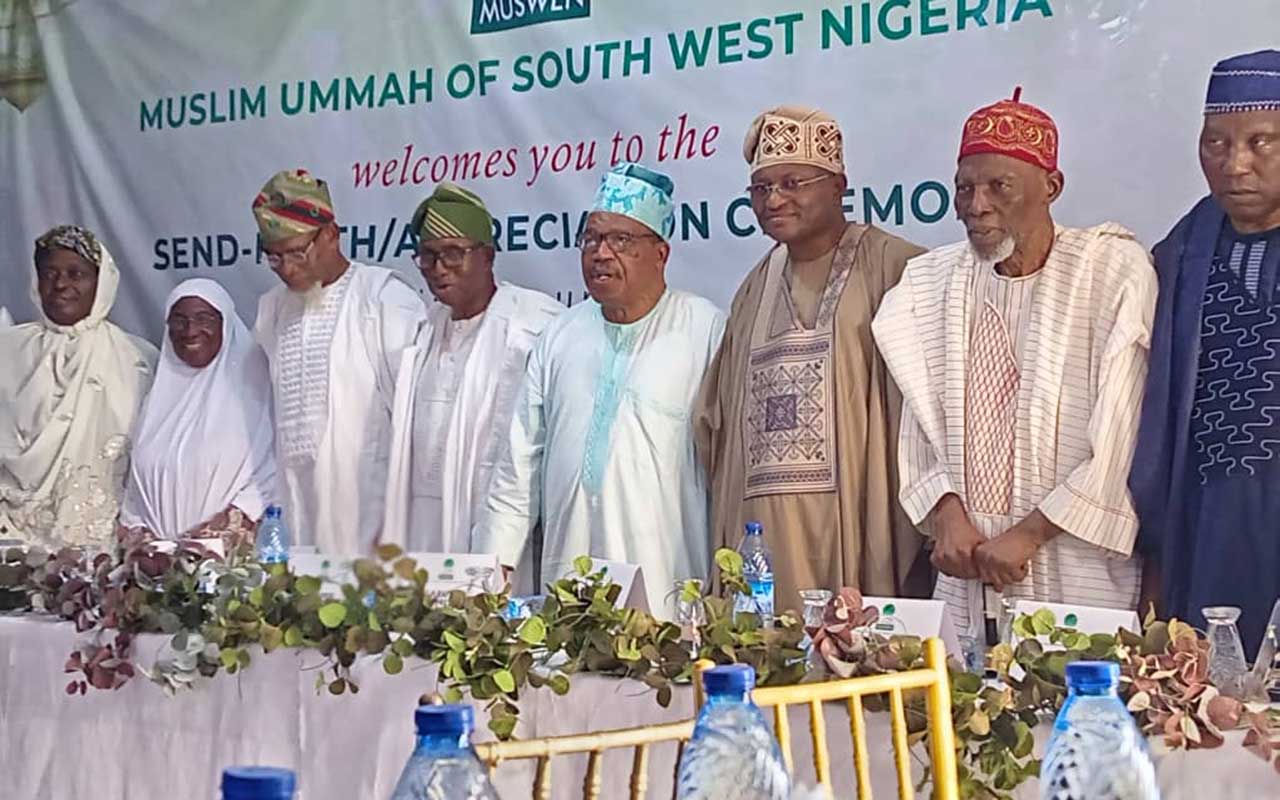“Therefore, say to them: Do works of righteousness! For God will assuredly see your work, and so will His Messenger and the believers. Moreover, you shall be returned in the end to the Sole Knower of the realms of all the unseen and the seen. Then He shall tell you the due recompense of all that you have been doing in life.” Qur’an 9:105.
The Sokoto State Commissioner of Religious Affairs, Dr. Jabir Sani Maihulla, says that the Ministry of Religious Affairs is a deliberate, evidence-based instrument of social policy and public welfare programmes and not merely a religious ministry.
In an interface with journalists, Dr. Maihulla made a compelling case of how the ministry advances public health, social cohesion, economic justice, and moral education in ways that conventional ministries cannot.
“Islam in Sokoto State is not only about worship; it is an integrated system of values and practices that shape the daily life of our people,” Dr. Maihulla said. “So, investing in religious infrastructure and guidance delivers cross-cutting benefits, cleaner prayer facilities that reduce the risk of disease transmission; monthly salary payments for Imams, which dignify them and had drastically reduced corruption and politicization of sermons; and zakat investments that are used for the benefit of orphans and vulnerable families.”
According to the Commissioner, concrete outcomes that justify the ministry’s existence include the rehabilitation and construction of 65 Jummah mosques across the state with many fitted with boreholes and solar power to improve hygiene and accessibility; the introduction of welfare programmes for Imams (regular stipends and support) to prevent exploitation by politicians, which has restored the integrity of Friday sermons; and the strengthening of the Zakat & Waqf Agency’s Productive Zakat Model, which invests in farms and real estate to create sustainable incomes for the upkeep of orphans and vulnerable families.
He further justified the creation of the ministry by Governor Ahmed Aliyu on the grounds that Sokoto State is the Seat of the Caliphate and the birthplace of Sheikh Usman Dan Fodio. According to him, when religion is woven into the civic and cultural fabric of the state, the people are the ultimate beneficiaries.
“When government harnesses religious institutions responsibly,” Dr. Maihulla said, “it solves several problems across many sectors at once, better religious practices, health, sanitation, education, and social justice.”
Other achievements of the ministry include addressing dishonest trade practices, highlighting public health and morality issues especially indecent dressing through town hall engagements, radio/TV programmes, and sermons by Imams in mosques, which he said have begun yielding the desired results.
The ministry has constructed perimeter walls at cemeteries and employed security guards and undertaken general maintenance across multiple localities.
“Ramadan campaigns promoted fair measurement by traders, and the training of butchers and market operators ensured ethical and better hygienic practices,” he added.
He stressed that the Ministry of Religious Affairs has transitioned from dormancy to delivering measurable, visible change across five strategic pillars: infrastructure, welfare, morality, conflict resolution, and public enlightenment.
“We are not a ministry of slogans. We measure our success with cleaner mosques, fewer disputes, better livelihoods for the vulnerable, and an overall atmosphere of trust. That’s what the people of Sokoto are telling us,” Dr. Maihulla said.
The Ministry of Religious Affairs, Sokoto State, oversees religious harmony, guidance, welfare of religious personnel, administration of zakat and waqf initiatives, and coordination with security and justice agencies to ensure that religious life is practiced within the rule of law.
He praised the inclusive administration being run by the Sokoto State Governor Ahmed Aliyu which, according to the Commissioner, has deepened people’s trust in government policies and programmes.
Specifically, Dr. Maihulla hailed the state’s inclusive approach to governance and religious tolerance recommending this as a model worthy of emulation by other states. The outcome of this value, he stressed, is the climate of peace and unity that has enveloped the entire state.
“Fair distribution of government projects, neutral policy decisions, and social programmes- such as the payment of WAEC and NECO fees for all students regardless of state of origin, empowerment programmes for the poor have all fostered a real sense of belonging,” he said.
Dr. Maihulla praised the governor’s commitment to delivering infrastructure and social services across all communities, noting that roads, healthcare facilities, and mosque renovations have been implemented in both urban and rural areas without bias. He also highlighted the role of proactive crisis-response coordination involving religious leaders and security agencies, which has been critical in de-escalating tensions before they ever arise.
Speaking on the Hisbah Corps, the Commissioner described it as a community-focused moral guidance body that operates with an emphasis on education, reconciliation, and legal compliance- an approach he credited as a key factor in the success of the governor’s administration.
“Our Hisbah is unarmed, well-trained, and embedded within community structures. Their work is to counsel and educate. Enforcement is only applied after a clear legal breach and due process have been followed,” Dr. Maihulla stated.
The corps is supervised by a multi-agency oversight committee that includes the Ministry of Justice, the Nigeria Police, the Sultanate Council, and other security agencies which has ensured checks, transparency, and accountability.
He further disclosed that recruitment into the agency prioritizes educated, service-oriented individuals, with the first cohort comprising approximately 230 personnel. That all officers undergo mandatory training on human rights, due process, and community engagement, often in collaboration with international partners. That strict legal protocols are also followed before the destruction of seized contrabands especially alcohol. And that Hisbah officers are prohibited from detaining suspects or inflicting physical punishment on suspects no matter the provocation.
According to the commissioner, since the corps’ relaunch, no human rights litigation has been recorded against the Sokoto Hisbah – a milestone which for the Ministry is evidence of the corps’ respect for human rights and community-sensitive approach to checking immorality.
“Peace is the foundation for development. Governor Aliyu’s policies are rooted in fairness, the dignity, and the protection of all citizens,” said the Commissioner.
He further emphasized that the Sokoto State Government under Governor Aliyu is committed to promoting unity, development, and equal opportunity for all residents through inclusive policies and transparent governance. He also commended the administration for ensuring that religious and cultural diversity are respected while maintaining peace, equity, and progress across the state.






